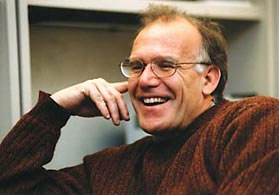COLUMN
By Victor Davis Hanson
Two days ago, I drove in a 5-square-mile radius and noticed that the 100 or so farms I grew up with are all gone. Caput. Everyone. Not one grandkid, relative, etc. seems to be farming. The acreage seems either rented out or sold off.
The land is usually leased to conglomerated operations (and the almond orchards look beautiful). Renters from Mexico and Central America mostly live in the clapboard decaying houses, and the barns and sheds look empty or eroding—or rented out to boarders. Often, they also sublet the yard to families living in trailers and make-shift sheds.
So strange that the land is more productive than ever, but the people who first developed it simply disappeared. Their only traces are these wooden skeletons that have not all been removed yet by larger agribusiness companies.
I grew up and still live on a small part of the land that our great-great grandmother bought (as bare scrub) from Leland Stanford’s Southern Pacific railroad in the 1870s. See Frank Norris’s The Octopus, and cf. the Mussel Slough Tragedy (7 miles away), for the animosity of small farmers in the latter 19th-century to “the railroad” that had urged them to buy on credit undeveloped land—only to leverage its repossession later when it was fully developed.
(As a side note it is a paradox to work at Stanford, to listen to all the faculty and student earnests erasing the past about them, and to witness all the names of the supposedly illiberal and long dead now vaporized for their crimes against 21st-century race, class, and gender norms (e.g., Father Sierra, David Starr Jordan, etc.).
And yet, and yet—even the most zealous renamer and reeducator does not mention changing the name of Stanford itself, built on the profits of senior Leland Stanford. He had quite unkind things to say about the Chinese laborers who helped build his empire and whose railroad policies in the San Joaquin Valley were aimed at destroying small farmers whom he lured to develop the lands gifted to him by the government—only to seek to evict and destroy them when they were cultivated and worth 50 times more than when purchased in their wild aboriginal state. I supposed Trotskyizing Father Serra is easy, but giving up the Stanford careerist brand is non-negotiable even for most committed revisionist.)
But enough of the modern editorialization: the homesteader agrarians who shot it out with the confiscators had public opinion on their side and ultimately the railroad began to back off, but not until after a lot of “tragedy”.
A quarter-century ago, I wrote two books once about our family’s fifth-generation farming some 110 years later, and how it became impossible for small orchard and vineyard growers to continue.
By 1980, four families were living on our 180-acre farm and we all had different views of what was going wrong around us, but all agreed something had gone haywire.
For an idea of what life was like before the fall, my brother and cousin five years ago published some poems and art (My San Joaquin) that give a rich flavor of what were once the common lives of everyone we knew but are now mere fragments of memory. I note that Horace warned of the cranky laudator temporis acti (the praiser of time past), but for all the technological wonders of the 21st century, Hesiod was right 2700 years ago that with material progress often comes moral regress.
Victor Davis Hanson is a distinguished fellow of the Center for American Greatness and the Martin and Illie Anderson Senior Fellow at Stanford University’s Hoover Institution. He is an American military historian, columnist, a former classics professor, and scholar of ancient warfare. He has been a visiting professor at Hillsdale College since 2004. Hanson was awarded the National Humanities Medal in 2007 by President George W. Bush. Hanson is also a farmer (growing raisin grapes on a family farm in Selma, California) and a critic of social trends related to farming and agrarianism. He is the author most recently of The Second World Wars: How the First Global Conflict Was Fought and Won and The Case for Trump.
The views and opinions expressed in this commentary are those of the author and do not necessarily reflect the official position of Citizens Journal.
Get Citizensjournal.us Headlines free SUBSCRIPTION. Keep us publishing – DONATE





